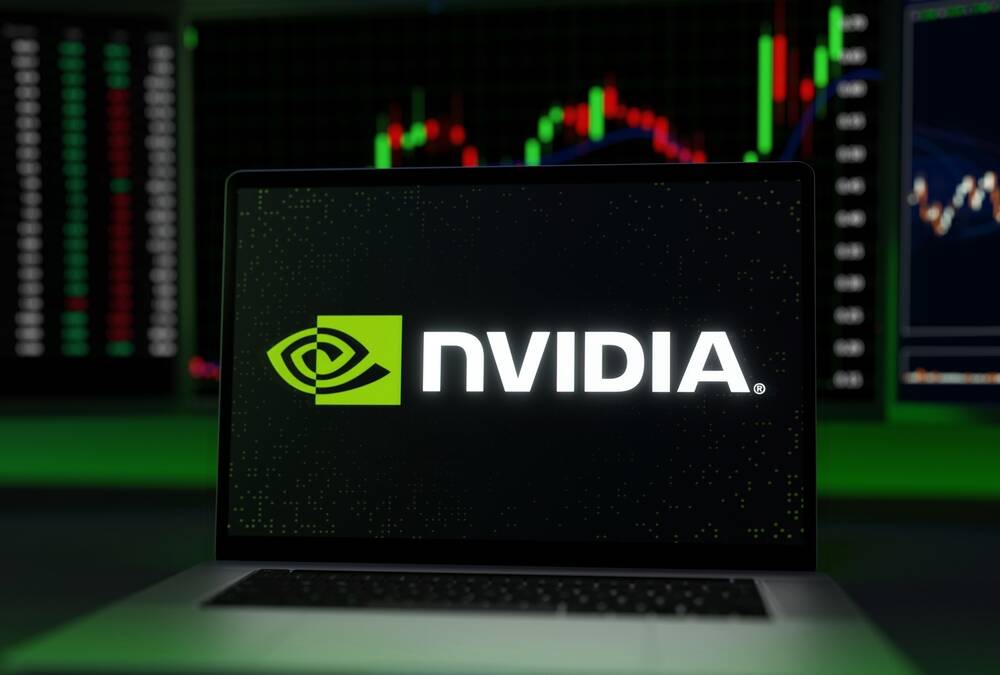Nvidia has rapidly lost about $500 billion off its market capitalization amid concerns that the GPU maker may have become overvalued or that the AI market powered by its chips is a bubble set to burst.
The California-based biz overtook Microsoft last week to become the world’s most valuable company with a market capitalization of $3.335 trillion, shortly after leapfrogging Apple. Now Nvidia is back down in third place again after losing about 15 percent of its peak value in a matter of days.
According to the Financial Times, this week’s drop followed disclosures at the end of last week that rock star CEO Jensen Huang had sold almost $95 million of the company’s shares just as it became the most valuable company.
This was perhaps taken as a sign that he believed Nvidia’s stock price had peaked and was cashing in, although the trades were of course part of a previously scheduled plan, in line with regulations.
Huang, along with other Nvidia execs, also sold off even more of their Nvidia holdings earlier this month, ahead of a planned 10-for-1 split in the company’s stock.
According to Fortune, stock traders indicated there was no single reason behind the sudden selloff, just that a rapid climb in the value of a stock can make it vulnerable to equally sudden retreats like the one Nvidia just experienced.
Nvidia declined to comment.
Reg readers would be forgiven for drawing comparisons with the dotcom bubble that burst around the turn of the millennium. Networking giant Cisco briefly became the world’s most valuable company back then before losing around 80 percent of its value the following year as telecoms operators slashed their spending on infrastructure.
A similar comparison was made by Bloomberg writer and ex-Reg vulture Ashlee Vance, who asked on Twitter: “If Nvidia is to the AI boom as Sun Microsystems was to the dotcom boom, then what will happen? Like Sun, Nvidia has engineered much of its hardware stack from the chip to the networking to work well with the software of the moment.”
Vance went on to say that “Nvidia has a window. The question is simply how long it will take to close.” This could be as short as three years, he speculated, if someone is able to make a chip that drastically outperforms Nvidia on training and/or inference.
“It could also be a 15-year window if it takes a large confluence of engineering factors and risk and new thinking to close the gap or change the problem altogether. Place your bets,” he concluded.
As we have previously reported, Nvidia’s continued success is tied to an assumption that all of this huge investment in AI is going to pay dividends somewhere down the line, and some are starting to have doubts about how long it will take and whether the payoff will be worth it.
Investment outfit Sequoia Capital estimated that the AI industry had spent $50 billion on Nvidia chips to train advanced AI models last year, but to date this has only delivered $3 billion in revenue.
Shares in internet colossus Meta also took a tumble earlier this year after boss Mark Zuckerberg admitted that it could take years of investment before the company’s AI businesses turn into profitable services.
There is also growing speculation in the financial media and elsewhere as to whether the AI wave represents a bubble.
“The significant outperformance of AI-related stocks in the last month relative to the rest of the market has once again prompted talk of bubble-like price action,” wrote a columnist on Forbes.
“With almost a quarter of all venture funding now flowing toward AI startups, I see the signs of some of investing’s darker days: a thin understanding of the core technology, the massive cash burn of the startups, poorly defined business models and sky-high valuations. The signs, in other words, of a bubble,” another columnist wrote on US political website The Hill.
However, some investors do not seem unduly concerned. Investment site Fool.com pointed out that Apple continued to grow after it became the first trillion-dollar company in August 2018, and there is no reason to suspect Nvidia will not, it asserts.
“Nvidia continues to hold an estimated 80 percent plus market share [in AI chips] in large part due to its CUDA software platform. Long before AI was the next big thing, developers were taught to program GPUs using Nvidia’s CUDA software, which helped make it the industry standard. In turn, this has created a large moat for the company,” it says.
MarketWatch quotes Wall Street analysts saying they expect Nvidia to post sales of $120 billion this year, largely double what was seen in 2023.
Assuming that the AI market doesn’t turn out to be a bubble that bursts, analysts at market watcher Omdia expect to see continued demand for Nvidia kit.
“The demand for GPUs will continue, especially for AI training,” said Senior Principal Analyst Manoj Sukumaran. “Custom ASIC development efforts and Nvidia competitors do not have the many features needed to make an optimal training cluster and an optimised software stack and it would take them a long time to catch up … Nvidia is likely to continue to grow its share of wallet in datacenter computing, maintaining its strong revenue growth.”
On the share price, Vlad Galabov, Head of the Cloud and Data Center Research Practice, told us: “I saw that Nvidia rebounded a bit after market. I think investors nerves are understandable given that its share price is 10x what it was in October 2022.” ®

